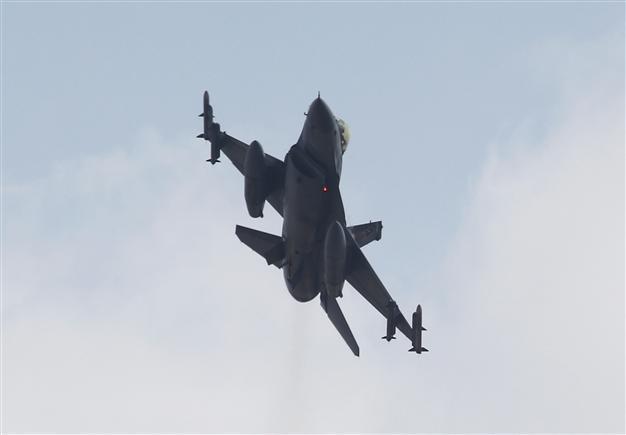Turkey condemns Arab League’s statement on PKK operations
ANKARA

A Turkish F-16 fighter jet takes off from Incirlik airbase in the southern city of Adana, Turkey, July 27, 2015. Reuters Photo
Turkey condemned and rejected a statement by the Arab League Secretary General Nabil al-Arabi on the Turkish military’s operations against the outlawed Kurdistan Workers’ Party (PKK) positions in northern Iraq.
A written statement by the Foreign Ministry cited PKK presence in northern Iraq and recalled that these hideouts are closed, despite cooperation efforts with Baghdad, with the group continuing to stage attacks against Turkey.
Ankara criticized al-Arabi for not raising its voice when the PKK “declared an autonomous canton in some parts of the Iraqi lands.”
The statement was not discussed among the member countries and solely reflects the views by the secretary general, said Turkey, in a statement released.
Turkey’s Foreign Ministry summoned the Ankara representative of the Arab League, Muhammed El Fettah Naciri, while expressing Turkey’s views on the matter, added the statement.
Qatar has broken ranks with the Arab League to give its close ally, Turkey, full support for air strikes in northern Iraq, according to another official Foreign Ministry statement.
On Aug. 4, the Arab League condemned Turkey’s actions and called on Ankara to recognize the sovereignty of Iraq.
The Arab League, which Qatar has been a member of since 1971, also called on Turkey and Iraq to increase cooperation in order to try and preserve peace.
In a statement released by Qatar’s official news agency late Aug. 5, however, Doha distanced itself from the Arab League declaration.
“The statement issued... on behalf of the Arab League was not discussed with the League member-states before it was released,” it read.
“Qatar reiterated its full solidarity with the Republic of Turkey for its actions and measures to protect its borders and preservation of its security and stability.”
A written statement by the Foreign Ministry cited PKK presence in northern Iraq and recalled that these hideouts are closed, despite cooperation efforts with Baghdad, with the group continuing to stage attacks against Turkey.
Ankara criticized al-Arabi for not raising its voice when the PKK “declared an autonomous canton in some parts of the Iraqi lands.”
The statement was not discussed among the member countries and solely reflects the views by the secretary general, said Turkey, in a statement released.
Turkey’s Foreign Ministry summoned the Ankara representative of the Arab League, Muhammed El Fettah Naciri, while expressing Turkey’s views on the matter, added the statement.
Qatar has broken ranks with the Arab League to give its close ally, Turkey, full support for air strikes in northern Iraq, according to another official Foreign Ministry statement.
On Aug. 4, the Arab League condemned Turkey’s actions and called on Ankara to recognize the sovereignty of Iraq.
The Arab League, which Qatar has been a member of since 1971, also called on Turkey and Iraq to increase cooperation in order to try and preserve peace.
In a statement released by Qatar’s official news agency late Aug. 5, however, Doha distanced itself from the Arab League declaration.
“The statement issued... on behalf of the Arab League was not discussed with the League member-states before it was released,” it read.
“Qatar reiterated its full solidarity with the Republic of Turkey for its actions and measures to protect its borders and preservation of its security and stability.”
















